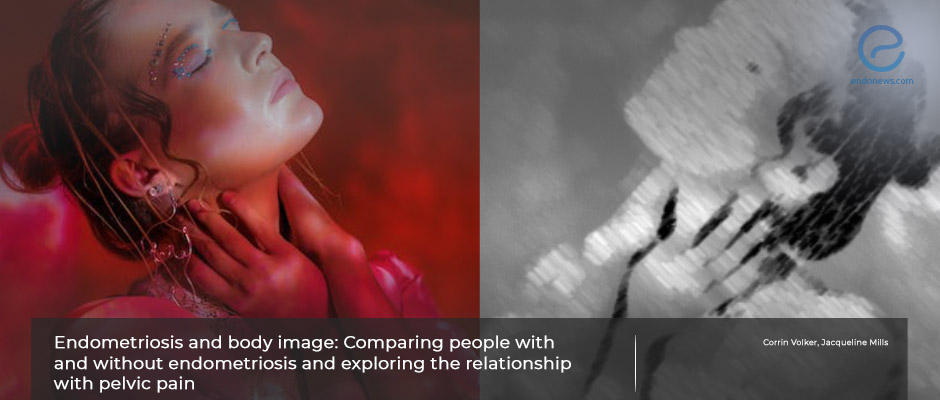Endometriosis and the body perception
Jan 12, 2023
Endometriosis has a significant impact on the perception of body image.
Key Points
Highlights:
- Endometriosis-associated symptoms, especially pelvic pain, decrease women's quality of life which negatively affects their body perception.
Importance:
- When evaluating and managing women with endometriosis, all aspects affecting the quality of life should be evaluated for optimal patient care.
What’s done here?
- This prospective case-control study was conducted to compare perceptions of body image in women with and without endometriosis.
- Whether endometriosis-associated pelvic pain had an effect on body image was also investigated.
- Patients who self-reported having endometriosis was the "study" group and those who self-reported having neither diagnosed nor suspected endometriosis were the "control" group.
- General appearance and specific body area satisfaction were measured using "Multidimensional Body-Self Relations Questionnaire-Appearance Evaluation" and "Body Areas Satisfaction" subscales.
- Functionality satisfaction was assessed by the Functionality Appreciation Scale.
Key Results:
- A total of 386 women were recruited in the study, 312 in the endometriosis group and 74 in the control group.
- A significant difference between the scores of people with and without endometriosis was detected for appearance satisfaction and body area satisfaction.
- Women having endometriosis were found to have significantly poorer functionality satisfaction when compared to the control group.
- It was also disclosed that endometriosis-related pelvic pain had a negative correlation with body image.
Strengths and Limitations:
- This is the first study to compare the perception of body image including both appearance and functionality in people with and without endometriosis.
- "Self-reported endometriosis and the inability to understand the severity, localization, and subtypes of endometriosis are limitations of the study.
Lay Summary
The most common endometriosis-associated symptoms are pelvic pain, dysmenorrhea, dyspareunia, and infertility. Women with endometriosis should be managed due to the significant impact of these symptoms on their quality of life.
Body perceptions of these women are also affected depending on the visual and functional effects of the disease. A group of scientists from Australia, published a brief research report entitled “Endometriosis and body image: Comparing people with and without endometriosis and exploring the relationship with pelvic pain” in the journal named Body Image.
The authors aimed to compare the perception of body image in women with and without endometriosis. They also investigated whether there was any impact of endometriosis-associated pelvic pain on body image or not. Hence, they performed three subscales from validated questionnaires (the Multidimensional Body-Self Relations Questionnaire-Appearance Evaluation Subscale, Body Areas Satisfaction Subscale, and Functionality Appreciation Scale) to measure the satisfaction of general appearance, specific body areas, and functionality. The impact of pelvic pain on daily function and wellbeing was scored using the Pelvic Pain Impact Questionnaire.
There was a significant difference between the scores of people with and without endometriosis regarding appearance satisfaction and body area satisfaction. Women having endometriosis were found to have significantly poorer functionality satisfaction when compared to the control group. It was detected that there was a negative correlation between endometriosis-related pelvic pain and body image.
“Having an improved understanding of the levels of satisfaction with their body is an important step to conceptualizing the experience of the body more broadly for people with endometriosis,” the authors commented.
Research Source: https://pubmed.ncbi.nlm.nih.gov/36375365/
endometriosis pelvic pain body image appearance satisfaction functionality appreciation

